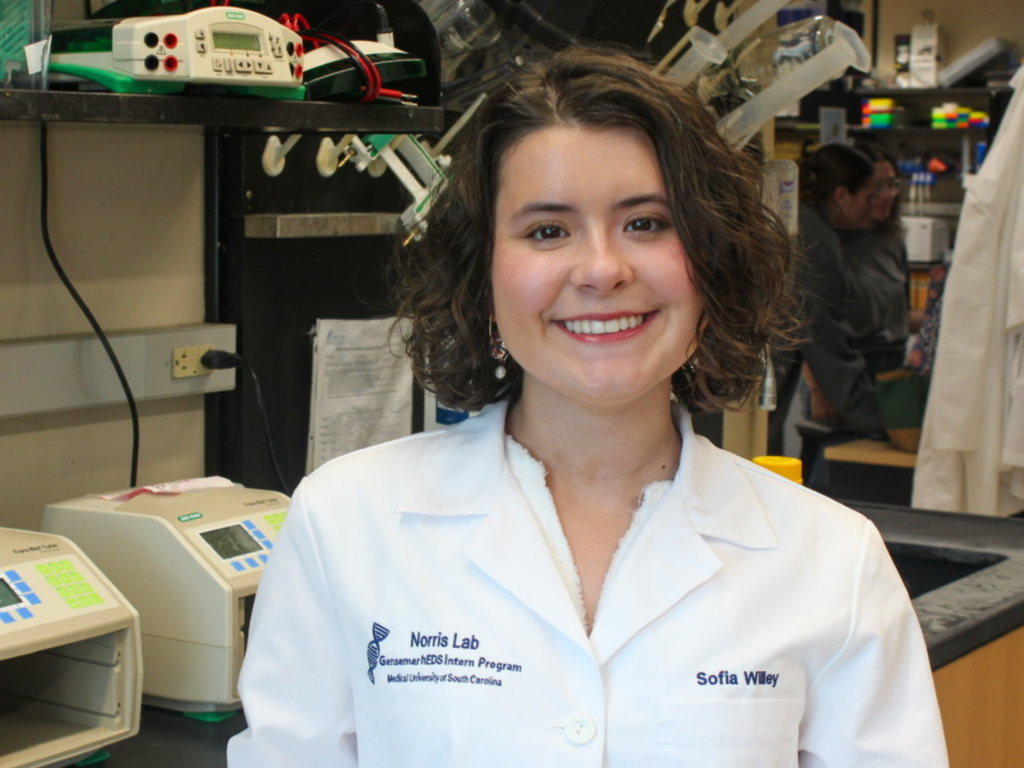
When senior genetics major Sofia Willey was in middle school, she began having abnormally intense joint pain, something doctors attributed to the rigor of competitive gymnastics and her 20 hour-a-week training schedule.
At first, doctors diagnosed her with hip dysplasia, but that didn’t account for the hypermobility symptoms, scarring and low bone growth. Her doctor then suggested Sofia may have Ehlers-Danlos Syndrome (EDS), specifically the hypermobile subtype. EDS is a rare genetic disorder that affects the connective tissue and can cause weak joints, affecting 1 in 5,000 people.

“I didn’t understand what was happening to me, and no one around me did either.”
Doctors’ limited knowledge of the disorder is due in part to the EDS being under-researched. This has inspired Sofia to pursue a degree in genetics and focus on research while in college.
“It becomes a lot of explaining your own problems to your doctor so they can prescribe or help you find what you need.”

This summer Sofia worked with the Norris Lab at the Medical University of South Carolina on a project related to the complement system and its biological importance in hEDS. Dr. Russell Norris a professor in the Department of Regenerative Medicine and Cell Biology. Norris lab is one of the preeminent labs researching EDS.
Sofia’s specific research aims at finding a diagnostic tool that could use specific protein levels in the blood to determine if a patient has EDS. She focused on changes in the immune system of patients with EDS compared to those without the disease, finding a few significant proteins that had different levels in subjects with EDS than in those without.

Sofia says her time in the Norris lab, which also included patient education, has helped her better understand her disease and problems in her own body. She hopes to change patients’ lives through knowledge of under-recognized diseases.
Read more in the Clemson News article.




